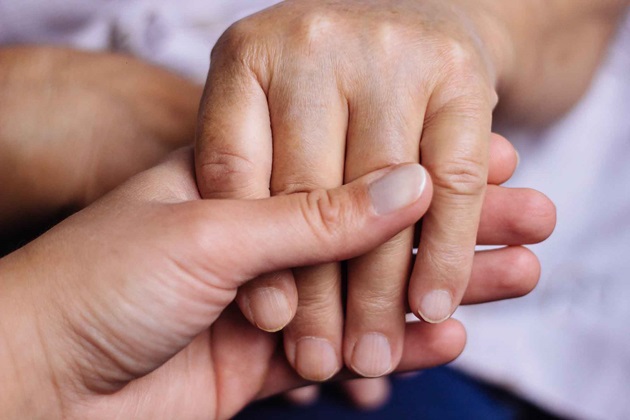Nurses have always been taught to treat patients with empathy – to share and understand the feelings of our patients. This is often best done by "putting yourself in their shoes". At no choice of my own I was put firmly into these shoes during the first semester of my final year.
After three A&E attendances it was discovered I had an impassable kidney stone which had resulted in hydronephrosis of my right kidney. I was admitted for emergency surgery, and later re-admitted after developing a serious infection.
I was in absolute agony and had nothing on my mind but the severe pain
The morning of my surgery I was actually meant to be delivering a presentation alongside some other student members of my cohort. Things quickly turned around, and it really was quite terrifying. At the time, I was in absolute agony and had nothing on my mind but the severe pain that had taken my right kidney hostage. However inconvenient this was, since reflecting on the experience, it has actually taught me a lot about being a nurse.
First of all, as we have all been taught, pain is subjective and unique to the person experiencing it, and that means individuals show pain in very different ways.
The pain of a kidney stone, said to be worse than birth, was the worst pain I have ever experienced. But I didn’t necessarily show this. I didn’t scream, and I wasn’t hysterical with tears, but I did score my pain as severe.
The big picture
It’s important that in nursing we take the whole picture into account. Get to know your patients – all of them will show pain in different ways, and that doesn’t mean someone’s pain is of any less significance for that patient just because they’re not screaming. If one patient is experiencing post-operative pain after major surgery, and another patient is in pain during a seemingly easy cannula insertion, these should both be considered seriously, as that pain is of significance for that patient at that point in time.
It's important that in nursing we take the whole picture into account
As part of my treatment in hospital I had to have rectal pain relief. I noticed several times that the nurses assumed that I wanted to give this to myself rather than have it administered; they were clearly trying to save me any embarrassment.
While I remain thankful that they were attempting to maintain my dignity, at the time when I was in severe pain it became almost impossible to care for myself – I could hardly walk to the toilet, let alone administer my own rectal medication.
We must remember how vital it is, as advocates, to give our patients the choice. It would have certainly saved me the embarrassment of having to ask the nurse to administer it for me.

The most important thing I learnt is possibly the most easily forgotten. It can become very easy on a 12-hour shift, when you are consumed in all of your tasks and chasing your paperwork, to forget to sit with your patients and say a few kind words.
But if you make sure you do anything on your shift, then please let it be this. Speak to your patients, not just through fleeting comments, but through kind conversation. My days in hospital were made much easier when my nurse sat and spoke with me. Wards can easily become lonely places for patients, and you may be the only source of companion they have.
Did you know?
Assessing and managing pain are essential components of nursing practice. Pain is often categorised as acute or chronic, but it is a complex physical, psychological and social phenomenon that is uniquely subjective.
Find more reading material on developing knowledge and skills in this area on the RCN Library webpages.








